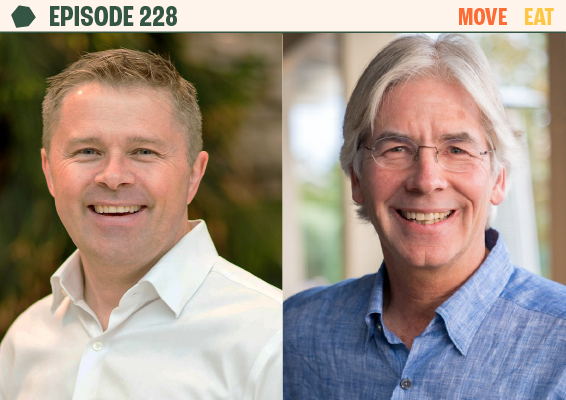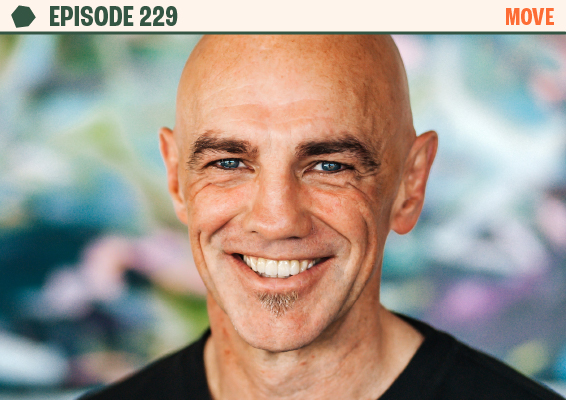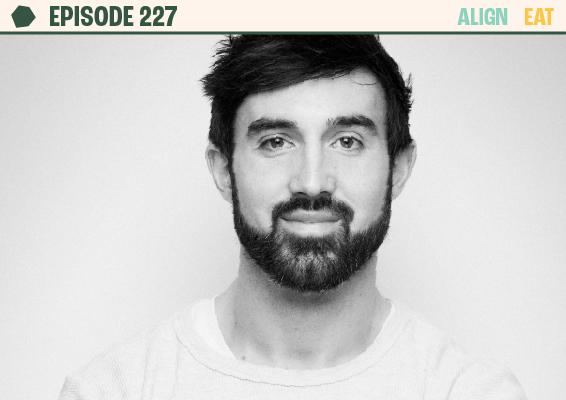In Episode #228, I sit down with Dr Stuart Phillips and Dr Christopher Gardner for a discourse on how much protein we really need.
“A true assessment of protein quality should take into account the other nutrients that come in those foods and the impact on the environment.” – Dr Christopher Gardner
There is ongoing conversation about protein requirements across all eating patterns, with this contentious topic often sparking debate on social media. With protein regularly used as a marketing tool or to push an agenda, many online sources are diluted and separated from the evidence. Dr Gardner and Dr Phillips – both from different fields – have recently taken varying stances on protein, engaging in a Twitter dialogue. In this episode, we bring both of their informed perspectives to the table, and ask: how much do their opinions really differ?
Christopher Gardner, PhD is the Rehnborg Farquhar Professor of Medicine at Stanford, the Director of Stanford Prevention Research Center’s (SPRC) Nutrition Studies Group, and the Director of the SPRC Postdoctoral Research Fellow Training Program. For the past decade, his primary research focus has been RCT in nutrition, and in recent years his focus has shifted to food systems as a whole and helping individuals make healthful improvements through motivators including social justice and animal rights, and their relationship with food.
Professor Stuart Phillips is a Tier 1 Canada Research Chair in Skeletal Muscle Health in Aging, and a Professor in Kinesiology and Graduate Faculty in the School of Medicine at McMaster University. With a prolific academic career and research focused on the impact of nutrition and exercise, Dr Phillips is highly established and widely respected in his field.
“There are lots of ways to eat, and eat well.” – Dr Stuart Phillips
In this episode we consider a range of factors that may affect protein needs, with both guests offering their own insights. We discuss nitrogen balance, lack of protein vs lack of exercise, and protein restriction. We also cover protein quality, satiety, and environmental considerations. Recommended daily intake (RDA) is a key factor in this conversation, with discussion points including its definition, the studies used to inform it, and whether you should eat above it.
Specifically, we discuss:
- 0:00 Intro
- 3:13 Analyzing the RDA for Protein
- 17:36 What is Optimal?
- 22:25 Dr. Gardner’s Approach to Protein
- 33:38 Aging & Muscle Preservation
- 38:32 How much is TOO much?
- 44:21 Plant Protein
- 56:54 Environmental Concerns
- 1:01:52 Satiety
- 1:07:24 Outro
Whether you’re torn on protein requirements or convinced on a certain viewpoint, this conversation will make for an interesting listen. I hope you learn something and feel more confident in your views.
You can connect with Dr Christopher Gardner on Twitter. Learn more about Dr Stuart Phillips on his faculty page, and connect with him on Instagram, Twitter, and Facebook.
The best way to support the show is to use the products and services offered by our sponsors. To check them out, and enjoy great savings, visit theproof.com/friends.
Enjoy, friends.
Simon
More about Stuart Phillips, PhD
Professor Phillips is a Tier 1 Canada Research Chair in Skeletal Muscle Health in Aging. He is a Professor in Kinesiology, and Graduate Faculty in the School of Medicine at McMaster University. He is a fellow of the Canadian Academy of Health Sciences (FCAHS) and the American College of Sports Medicine (ACSM). His research is focused on the impact of nutrition and exercise on the mechanisms of human skeletal muscle protein turnover. He is also keenly interested in diet- and exercise-induced changes in body composition particularly in older persons.
His research is funded by the Canadian Institutes for Health Research, the National Science and Engineering Council of Canada, the Canadian Foundation for Innovation, the US NIH, the USDA, and several industry partners.
Dr. Phillips was the inaugural recipient of the Enzo Cafarelli Graduate Mentor Award in 2017. He was named to Clarivate’s Highly Cited Award in 2018-2021 as one of the top 1% of all cited researchers in physiology and nutrition. He has more than 50,000 citations and an h-index of 121.
More about Christopher Gardner, PhD
Dr Gardner is the Rehnborg Farquhar Professor of Medicine at Stanford, the Director of Stanford Prevention Research Center’s (SPRC) Nutrition Studies Group, and the Director of the SPRC Postdoctoral Research Fellow Training Program. His primary research focus for the past decade has been randomized controlled nutrition intervention trials (soy, garlic, antioxidants, ginkgo, omega-3 fats, vegetarian diets, weight loss diets), testing the effects of these on chronic disease risk factors that have included blood cholesterol, weight, inflammatory markers, and the microbiome. His research interests have recently shifted to two new areas. The first is to approach helping individuals make healthful improvements in diet through motivators beyond health, linking to ongoing social movements around animal rights and welfare, climate change, and social justice, and their relationships to food. The second is to focus less on trying to improve individual behaviours around food, and more on a food systems approach that addresses the quality of food provided by universities, worksites, hospitals, schools, etc., using a community-based participatory research approach and taking advantage of the many complementary disciplines represented on the Stanford campus, such as medicine, business, education, law, and earth sciences.
Additional resources, supporting studies
- Hannah Ritchie and Max Roser (2020) – “Environmental Impacts of Food Production”. Published online at org. [Online Resource]
- Increasing the protein content of meals and its effect on daily energy intake • PMID: 21272705
- Maximizing the intersection of human health and the health of the environment with regard to the amount and type of protein produced and consumed in the United States PMID: 30726996
- Perspective: The Public Health Case for Modernizing the Definition of Protein Quality • PMID: 31066877







